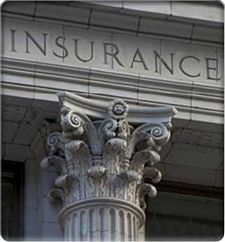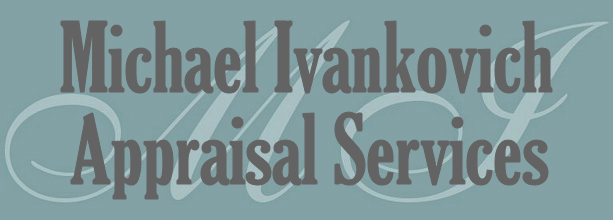|
 What
would happen if something you cherished was lost, damaged, destroyed
or stolen? If you have an all-inclusive HO-3 Home Owners Insurance
Policy issued by a reputable Insurance Company, you're covered
for your loss, right? What
would happen if something you cherished was lost, damaged, destroyed
or stolen? If you have an all-inclusive HO-3 Home Owners Insurance
Policy issued by a reputable Insurance Company, you're covered
for your loss, right?
Not so fast. Most Home Owner's Insurance HO-3 Policies are generally
"all-inclusive" which means that you are covered
for all types of loss...unless they are specifically
excluded in your policy. And most HO-3 Policies are very
similar in that they limit the amount of loss you can claim for
certain items such as:
- Cash
- Sterling
and other Fine Silverware
- Art
(including Oils; Watercolors, Pastels, Prints, etc.)
- Antiques,
Collectibles, and Collections
- Jewelry
(including Furs, Watches, etc.)
- Coins
& Stamps
- Cameras,
Computers, or Electronics
- Firearms
- Home
Office Business Property (Computers, Accessories, Desks etc.)
- And
More.
Perhaps
your loss was caused by a minor accident. Or possibly it was caused
by something more significant such as a fire, wind, storm, or
hurricane. What if someone accidentally breaks a valuable item?
What if your home was burglarized?
It doesn't matter. Even if your lost valuable is worth $50,000
or more, you will not be covered for more than your policy's
allowed maximum...which is typically limited to $1,000-$2,500.
Unless you have a "Rider"
attached to your policy which specifically insures your valuables.
Sometimes called a personal property "Endorsement",
"Schedule" or "Floater",
whatever the name, each serves as a mini-Insurance Policy which
provides additional coverage for your itemized valuables that
are not covered by your basic HO-3 policy. And often this coverage
is surprisingly inexpensive (only a few dollars/$1000 of coverage)
because the coverage is so specific, and often there isn't even
a deductable.
The process of adding a "Rider" to your
existing Insurance Policy is as simple as 1-2-3:
- Review
Your HO-3 Policy with your Insurance Agent: First clarify
what is and is not covered by your policy. Discuss what you
would be covered for in the event of loss, and then analyze
the amount of coverage you actually need. A good Insurance Agent
can easily lead you through this.
- Obtain
an Insurance Replacement Cost Appraisal: Your Insurance
Company wonft let you insure your valuables for more than
they are worth because the temptation for fraud would be too
great. You will need a written appraisal, completed by a professional,
qualified and unbiased Personal Property Insurance Appraiser,
to analyze and describe your valuables, and then assign an appraised
value to each item. If the appraised value is too low, youfll
be gunder-insuredh. If itfs too high, youfll
be paying too much.
- Home
Office Review & Rating: Once the Insurance Appraisal
is done your agent will submit it to the Insurance Companyfs
Home Office for review and approval. Once approved, just pay
your premium on-time and you will have the additional piece
of mind knowing that your valuables are properly covered.
How Does The Insurance Appraisal Process Work?
The
objective of your HO-3 Home Ownerfs Policy and any attached
Riders is to restore you to your pre-loss position...quickly,
easily, & painlessly...should any of your personal property
be lost, damaged, destroyed, or stolen.
"Insurance Replacement Cost" is defined
as: The highest price in terms of cash or other precisely
revealed terms that would be required to replace property with
another of similar age, quality, origin, appearance, provenance
and condition, within a reasonable length of time, in an appropriate
market.
Let's look at the four components of this definition:
-
Highest price: Your Insurance Appraiser will research
the highest reasonable amount it will cost you to replace your
loss, and your objective should be to insure your valuables
at a retail and not a wholesale price.
- Similar
age, quality, origin, appearance, provenance and condition:
Rarely will you find the exact replacement for your lost antiques,
collectibles, jewelry, art, etc. The objective here is to replace
your item(s) with something "comparable", not
something "exact".
- Within
a reasonable length of time: When you suffer an Insurance
loss, your objective should be to restore yourself to your pre-loss
position quickly, and the fastest way to do this is to make
a retail purchase, not shop around for a wholesale bargain.
- In
an appropriate market: If you bought your valuables
at a fine Jewelry Store, that's probably where you should go
for a replacement; if it came from a Flea Market, that would
be the most "appropriate" market for you.
What
To Look For In A Good Insurance Replacement Cost Appraisal:
When you need a Personal Property Insurance Appraisal, you should
seek out the best and most knowledgeable Appraiser for what you
need appraised, recognizing that different Appraisers have different
specialties. But all Insurance Replacement Cost Appraisals should
include the following:
-
Description: An expert physical description of
each item including rarity, size, age, condition, and anything
else of importance.
- Photographs:
To prove evidence of existence and pre-loss condition.
- Value:
The current Insurance Replacement Cost Value.
- Back-Up
Copy: And your Appraiser should retain a copy of your
appraisal for at least 5 years, in the event yours should be
lost or misplaced.
How
To Keep Insurance Costs Under Control: If you are concerned
about the cost of adding a Rider, here are several ideas to help
you keep the cost down.
-
Insure Only Important Items. Set a value limit,
perhaps insuring only things valued at $200 each or more, while
"Self Insuring" the smaller items.
- Use
Realistic Replacement Cost Values. Some Appraisers will
provide you with inflated values which make you feel good about
what you own, but cost you more than necessary in premiums.
- Keep
Your Appraisal Current: Recognize changing value trends.
Your gold & silver jewelry and decorative accessories should
be valued higher today because of the higher price of gold &
silver. If your Art was last appraised in the 1980's,
it's probably under-insured today. Yet many of your Antiques
& Collectibles have probably dropped in value since the
1990's. You should renew your appraisals every 5 years
in order to stay on top of changing value trends.
How
To Keep Appraisal Costs Under Control: If your Appraiser
tries to charge a fee equal to a percentage of appraised value,
find another Appraiser. That approach only leads to inflated values.
And it's unethical. Most Appraisers will charge you a flat fee
based upon either an hourly fee, or the scope of the job. Recognize
that the easier you make it for your Appraiser, the lower your
appraisal fee will be.
- Take
The Items To Your Appraiser. When practical, take items
to the Appraiser rather than having them come to your home.
This will reduce the appraiser's travel time.
- Only
Appraise Items Over a Specific Amount. Perhaps $200
or more. It takes just as long to appraise a $5 item as it does
a $200 item and costs can mount fairly quickly if you opt to
appraise each $5 teacup and saucer that you own.
- Have
Everything Opened and Ready to Be Appraised. Be prepared.
If the Appraiser is standing around watching you open boxes
and unpack china and glass, youfre just throwing away
money. Do that before the Appraiser arrives.
In
summary, don't assume that your valuables are covered by
your HO-3 Homeowners Insurance Policy. Check with your agent to
be sure and, where appropriate, obtain an Insurance Replacement
Cost Appraisal, by a professional Insurance Appraiser, and add
the appropriate Rider(s) to completely cover your most cherished
possessions.
Michael
Ivankovich is a Professional Personal Property Insurance Appraiser
based in Doylestown, Bucks County, PA. He is a GPPA (Graduate
Personal Property Appraiser), an MPPA (Master Personal Property
Appraiser), and is USPAP-certified. He is a licensed and bonded
Pennsylvania Auctioneer with 20+ years Auction experience, has
been named Pennsylvania's Auctioneer of the Year by the Pennsylvania
Auctioneers Association, and has 35+ years experience in the Antiques
& Collectibles field.
Several of his specialty areas include Insurance and Divorce Appraisals,
as well as Appraisals of Art, Furniture, Estates, Household &
Residential Contents, and much more.
You are invited to visit his web site at http://www.michaelivankovichappraisals.com
And you can reach Mr. Ivankovich at (215)-264-4304 or by email:
[email protected]
|



